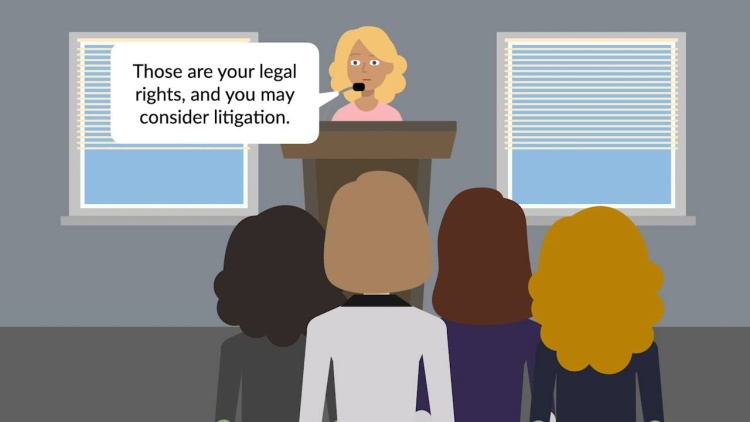In re Primus
United States Supreme Court
436 U.S. 412 (1978)

- Written by Richard Lavigne, JD
Facts
Attorney Edna Smith Primus (plaintiff) volunteered for the American Civil Liberties Union (ACLU) and worked for the nonprofit South Carolina Council on Human Relations (council). During the summer of 1973, Gary Allen, a business owner from a nearby county, asked the council to meet with women who had been forced to consent to sterilization in order to receive state Medicaid benefits. The council asked Primus to respond. At the meeting, Primus informed sterilization victims about their legal rights and mentioned the prospect of future litigation. Mary Etta Williams, previously sterilized by Dr. Clovis H. Pierce, attended the meeting. The following month, Primus learned that the ACLU would provide representation for sterilization victims. Allen informed Primus that Williams wanted to pursue a lawsuit against Pierce. Primus wrote Williams on letterhead of the Carolina Community Law Firm and told her about the opportunity for ACLU representation. Later, Williams visited Pierce. Pierce’s attorney asked Williams to sign a release of liability. Williams signed the release and showed Pierce’s attorney the letter she had received from Primus. Williams called Primus to tell her she was not interested in a lawsuit. Primus had no further contact with Williams but was publicly reprimanded by the state supreme court for directly soliciting a prospective client. Primus petitioned the United States Supreme Court for review of the disciplinary action.
Rule of Law
Issue
Holding and Reasoning (Powell, J.)
Dissent (Rehnquist, J.)
What to do next…
Here's why 907,000 law students have relied on our case briefs:
- Written by law professors and practitioners, not other law students. 47,100 briefs, keyed to 996 casebooks. Top-notch customer support.
- The right amount of information, includes the facts, issues, rule of law, holding and reasoning, and any concurrences and dissents.
- Access in your classes, works on your mobile and tablet. Massive library of related video lessons and high quality multiple-choice questions.
- Easy to use, uniform format for every case brief. Written in plain English, not in legalese. Our briefs summarize and simplify; they don’t just repeat the court’s language.





